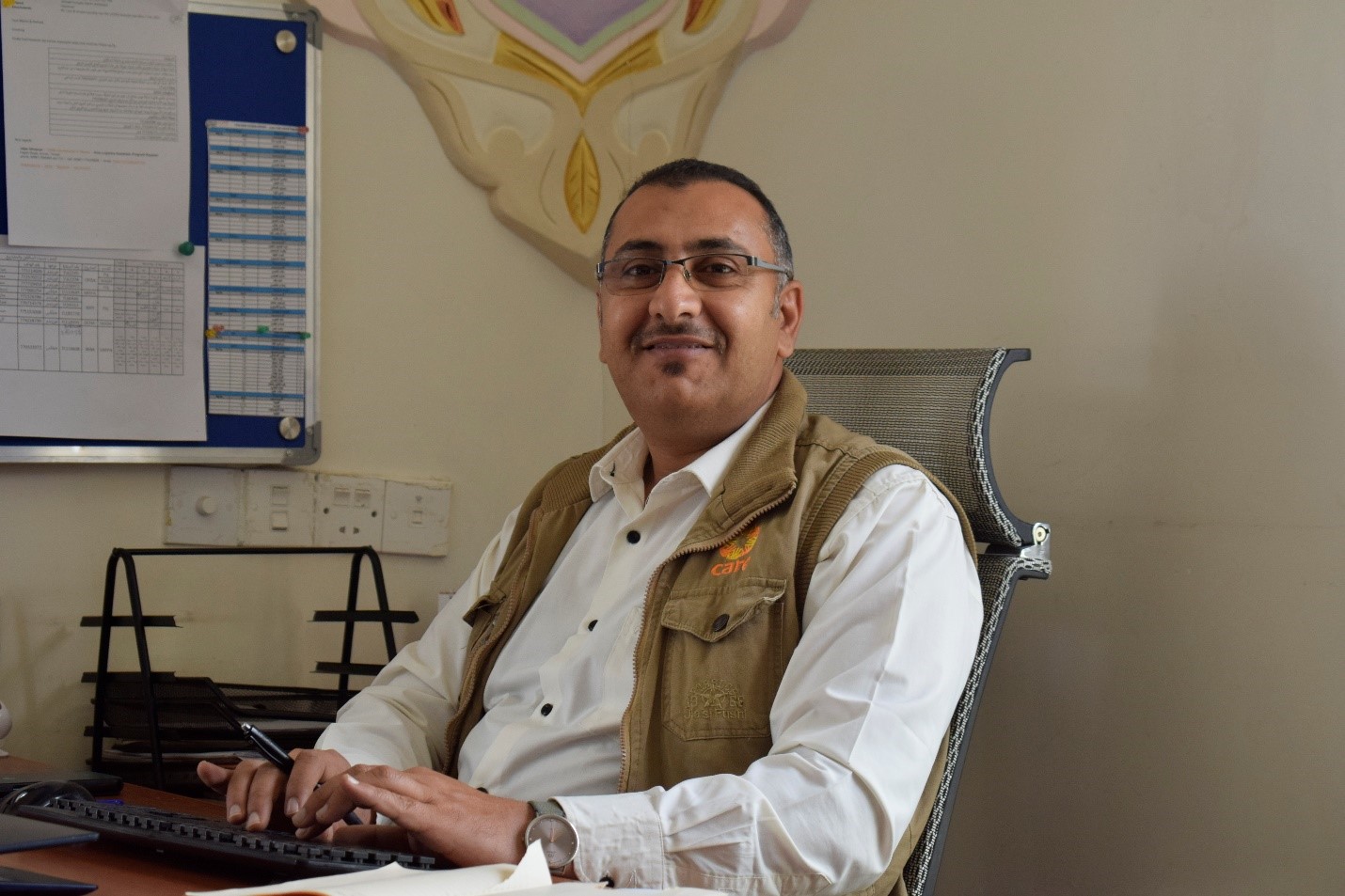A day in Ramadan, and I finished a day’s work as Food Security and Livelihoods Team Leader (FSL TL) in Amran Office and left the office and walked home. On my way, I saw roads were full of people and the fuel queues had become longer which wasn’t an uncommon sight in Amran city. People had to wait for days to get fuel.
Because of the fuel crisis, no salaries, no jobs, combined with the economic crisis and Yemeni currency depreciation, Yemenis continue to struggle to secure their most basic needs of food. Many people have had to resort to walking long distances on foot from one area to another, from one market to another, and from one shop to another, and many stand at traffic lights asking for help or anything they may take from others to meet a few of their needs and to be able to buy the minimum of what they need for Ramadan. During Ramadan, many families have been breaking their fast on only water, bread and yogurt.
Through my work as an FSL TL, I have come across many tragic stories of struggling for survival which have become common in Amran particularly, and in Yemen generally.
For ages, we have always heard the common Yemeni proverbial expression – “Eid is the feast of wellness” which is basically used when someone has no money to cover his basic needs for Eid. People say it to console themselves when they are unable to meet the necessities, as clothes, food and gifts of Eid celebration. However, due to the war that has been going on for years, this Eid comes and millions of Yemeni people desperately wish for that “Feast of Wellness.”
Yemen continues to be one of the largest humanitarian crises in the world, with 54 percent of the population of 31.9 million experiencing high acute food insecurity. Based on recent figures, 17.4 million people are facing severe food insecurity now with this rising to 19 million as we approach the second half of the year. As a Yemeni, it pains me to hear that up to 161,000 people will be facing extreme hunger or famine this year and that 2.2 million children under five and 1.3 million pregnant and lactating women will have to fight acute malnutrition. Sadly, the people in Amran Governorate will not be immune to these statistics as the population struggle with the ongoing crisis, high levels of displacement and widespread destruction of infrastructure and facilities.
Alfitr Eid has always had a special place in the hearts of all Yemenis. I remember that the eve of every Eid was full of warmth and happy preparations for the next day. It is common practice for Yemenis, that female members of the family get together to prepare the cookies, incense and decorations while male members help in buying the sweets and new clothes for the family members. In the early morning of the next day, everybody takes a shower, puts on new clothes and we go for Eid Alfitr prayers. Visiting relatives is the most important custom as soon as people finish praying. Nuts, desserts, drinks and the home incense smell are given to the visitors while visitors give some money as Eid gift. A couple of days later people travel to the countryside to have fun and spend time exploring the nature.
But because of the war, Eid preparations and customs, which are an intricate part of our culture, are no longer possible for many. So many families can’t afford to buy children’s clothes, nuts or desserts or even make cookies. There is no possibility to exchange gifts among the family as people no longer have that purchasing power. The war that has been raging in my country for eight years now has negatively affected every part of the Yemeni life including the Eid traditions. Streets and alleys seem empty. We can’t travel anywhere due to the costly fuel and expensive hotel costs.
Prior to the war, there was strong relationship among the neighborhoods’ families and generous people used to give away food or money to the needy, especially during Ramadan and Eid times. However, after the eruption of the war, this tradition generally faded away. It had to. Many households have lost their primary source of income and can no longer provide enough food for their own families and can’t access basic services. Many – up to 80 percent – are now living below the poverty line. I still remember one of my relatives in Amran telling me, “My children and I only have one meal of bread and water a day. We usually don’t feel full and sleep hungry”. Just like many others, she is not able to buy Eid clothes for her children. “My kids will wear their old clothes; they will not have candy and toys. I can’t look into their eyes,” she tells me. Unfortunately, such stories are commonly heard around Amran, of people who struggle to have food for one meal a day. As a result, I appeal for urgent support to the Yemeni people as well as an urgent stop of the war.
Despite what we have to face daily, when looking into people’s eyes you can see their unrelenting resilience even though they continue to live within a large-scale humanitarian crisis since 2015. When someone wishes to witness the true joy of Eid in its most beautiful and completed form, they should focus on the looks on children’s faces. The real feast and celebration for families will be when they’re able to see the smile and the enjoyment on the faces of their children. I personally hope the war will end soon and I hope Yemen finds peace and safety this year 2022, so people can become strong enough to be able to provide essentials for their families and that we can truly say “Eid is the feast of wellness” with all that it will bring for us. Eid Mubarak!
